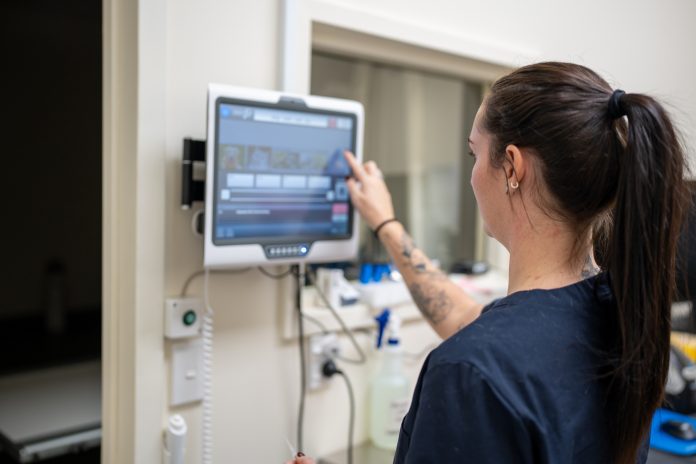A new UCL study reveals that outdated IT and governance delays are slowing AI adoption in the NHS
A new study from University College London (UCL) highlights the significant hurdles slowing the adoption of AI in the NHS. From fragmented IT systems and procurement delays to governance challenges and staff training needs, the research identifies key obstacles preventing hospitals from fully integrating AI technologies into patient care. Understanding these barriers is crucial as the NHS seeks to harness AI to improve diagnostics, efficiency, and healthcare outcomes.
The complete study is published in The Lancet eClinicalMedicine.
First to study the real-world implementation of AI in healthcare
In 2023, AI was introduced to NHS England to aid in the diagnosis of chest conditions, including lung cancer, across 66 NHS hospital trusts in England, backed by £21 million in funding. Each trust was grouped into 12 imaging diagnostic networks, allowing more patients to access specialist tools.
UCL researchers conducted a pioneering study, one of the first to analyse the real-world implementation of AI in healthcare. They reviewed the procurement and setup of AI tools through interviews with hospital staff and AI suppliers, identifying both challenges and factors that facilitated the process.
Implementing AI in the NHS took longer than expected and faced challenges
The researchers found that setting up the AI tools took longer than anticipated by the programme’s leadership. Contracting took between four and 10 months longer than expected, and by June 2025, 18 months after contracting was meant to be completed, a third (23 out of 66) of the hospital trusts were not yet using the tools in clinical practice.
Key challenges included engaging clinical staff, who already have high workloads, in the project, embedding the new technology in ageing and varied NHS IT systems across dozens of hospitals, and a general lack of understanding and scepticism among staff about using AI in healthcare.
The researchers also highlighted the crucial factors that facilitated the integration of AI in the NHS. These included the leadership of the national programme, collaboration among local imaging networks, and a high level of commitment from hospital staff leading the implementation. Their dedication was instrumental in this process.
The researchers concluded that while “AI tools may offer valuable support for diagnostic services, they may not address current healthcare service pressures as straightforwardly as policymakers may hope”, and are recommending that NHS staff are trained in how AI can be used effectively and safely.
Senior author Professor Naomi Fulop (UCL Department of Behavioural Science and Health) said: “In this project, each hospital selected AI tools for different reasons, such as focusing on X-ray or CT scanning, and purposes, such as to prioritise urgent cases for review or to identify potential symptoms.
“The NHS is made up of hundreds of organisations with different clinical requirements and different IT systems, and introducing any diagnostic tools that suit multiple hospitals is highly complex. These findings indicate AI might not be the silver bullet some have hoped for, but the lessons from this study will help the NHS implement AI tools more effectively.”
First author Dr Angus Ramsay (UCL Department of Behavioural Science and Health) said: “In July, ministers unveiled the Government’s 10-year plan for the NHS, of which a digital transformation is a key platform.
“Our study provides important lessons that should help strengthen future approaches to implementing AI in the NHS.
“We found it took longer to introduce the new AI tools in this programme than those leading the programme had expected.
“A key problem was that clinical staff were already bustling – finding time to go through the selection process was a challenge, as was supporting integration of AI with local IT systems and obtaining local governance approvals. Services that utilised dedicated project managers found their support to be very helpful in implementing changes, but only some services were able to do so.
“Also, a common issue was the novelty of AI, suggesting a need for more guidance and education on AI and its implementation.
“AI tools can offer valuable support for diagnostic services, but they may not address current healthcare service pressures as simply as policymakers may hope.”











